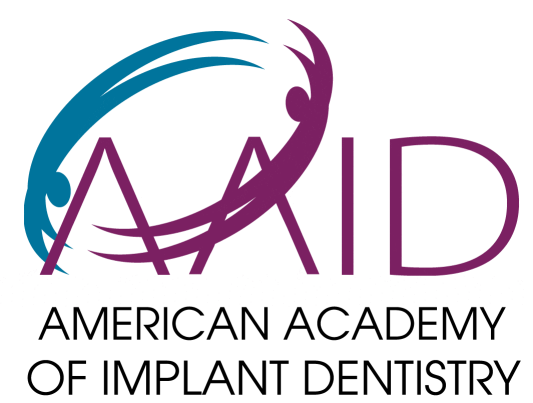Tooth replacement options have innovative solutions to restore not only smiles but also the functionality of teeth. In this comprehensive guide, we’ll explore the various choices available and shed light on their benefits and considerations.
Whether you’re dealing with a missing tooth due to injury, decay, or other reasons, there are several effective approaches to consider.
Understanding the Importance of Tooth Replacement
Losing a tooth can have more than just aesthetic implications. Beyond affecting your smile, missing teeth can lead to a series of oral health issues. Adjacent teeth might shift, causing misalignment and bite problems. The jawbone in the area of the missing tooth can also start to deteriorate over time, affecting the facial structure and overall oral health. Thus, exploring tooth replacement options becomes vital not only for your appearance but also for maintaining oral functionality.
Dental Implants Solution
Dental implants are titanium posts surgically implanted into the jawbone, providing a sturdy foundation for artificial teeth. The crown that goes on top of the implant is meticulously designed to match the color, shape, and size of your natural teeth, ensuring seamless integration.
Benefits:
- Permanent and stable solution.
- Maintains jawbone health.
- Natural look and feel.
- Long-lasting, potentially a lifetime.
Considerations:
- The surgical procedure involved.
- Requires good overall oral health.
- Lengthier process compared to some alternatives.
Dental Bridges: Filling the Gap
A dental bridge is a prosthetic tooth or set of teeth that fill the gap left by missing teeth. It consists of crowns on either side of the gap (abutment teeth) and the artificial tooth/teeth (pontic) in between.
Benefits:
- Non-surgical approach.
- Restores biting and chewing functionality.
- Helps prevent adjacent teeth from shifting.
Considerations:
- Requires the support of adjacent healthy teeth.
- Potential wear on abutment teeth over time.
Denture Implants: Modern Solutions
Dentures offer more comfortable and natural-looking options. They are removable replacements for missing teeth and come in two main types: full dentures and partial dentures.
Benefits:
- Replaces multiple teeth.
- More affordable compared to implants.
- Improved aesthetics and comfort.
Considerations:
- May require adhesive for stability.
- Potential for slipping or movement while eating or speaking.
- Regular maintenance and cleaning are required.
Implant-Supported Dentures: Best of Both Worlds
For those seeking a combination of stability and affordability, implant-supported dentures present an appealing choice. These dentures are anchored onto dental implants, providing better stability and reducing the common issues associated with traditional dentures.
Benefits:
- Enhanced stability compared to conventional dentures.
- No need for adhesive.
- Improved biting and chewing efficiency.
Considerations:
- A surgical procedure is required for implant placement.
- Higher cost compared to traditional dentures.
The Role of Bone Augmentation
In some cases, individuals may not have sufficient jawbone density to support dental implants. Bone augmentation is a procedure that involves grafting bone or bone-like materials onto the jawbone to enhance its strength and volume, creating a suitable foundation for implants.
Benefits:
- Enables individuals with low bone density to receive implants.
- Strengthens the jawbone over time.
Considerations:
- Additional surgical procedure.
- Prolongs the overall treatment timeline.
Conclusion
Choosing the right tooth replacement option depends on various factors, including your oral health, budget, and personal preferences. Dental implants offer a permanent and natural-looking solution, while bridges and dentures provide effective alternatives. Implant-supported dentures combine stability and affordability, and bone augmentation can extend the possibility of dental implants to those with low bone density. Consultation with a dental professional is essential to determine the best option for your unique situation, ensuring you regain both your confident smile and optimal oral functionality.
For those in Ashburn, Leesburg, and Lansdowne, VA, Lansdowne Family Dental is the go-to place for all dental needs. With a wide range of services and a patient-first approach, Begin your dental journey with us. Just call us!
FAQs
Q1: Are dental implants painful to get?
A: The procedure is usually performed under local anesthesia, ensuring minimal discomfort during the surgery. Some post-operative discomfort may be experienced, but it can be managed with prescribed pain medications. Also, check this article for more information about dental implant pains and problems.
Q2: How long does it take to get dental implants?
A: The timeline can vary depending on individual cases. After implant placement, there’s a healing period of a few months during which the implants integrate with the bone. The entire process, from implant placement to crown attachment, can take several months.
Q3: How do I care for my dental implants or dentures?
A: Dental implants require regular oral hygiene practices similar to natural teeth, including brushing, flossing, and regular dental check-ups. Dentures should be removed and cleaned daily, and you should also clean your mouth and gums thoroughly. Follow your dentist’s instructions for the best care practices.






